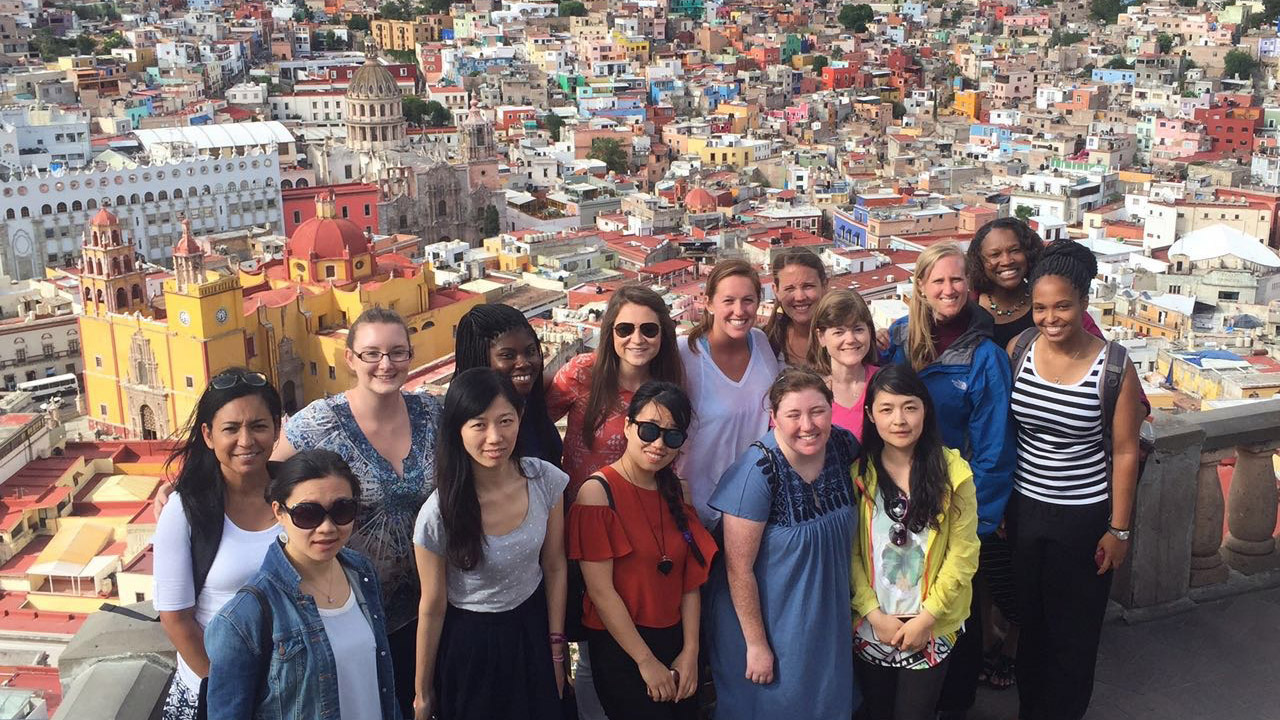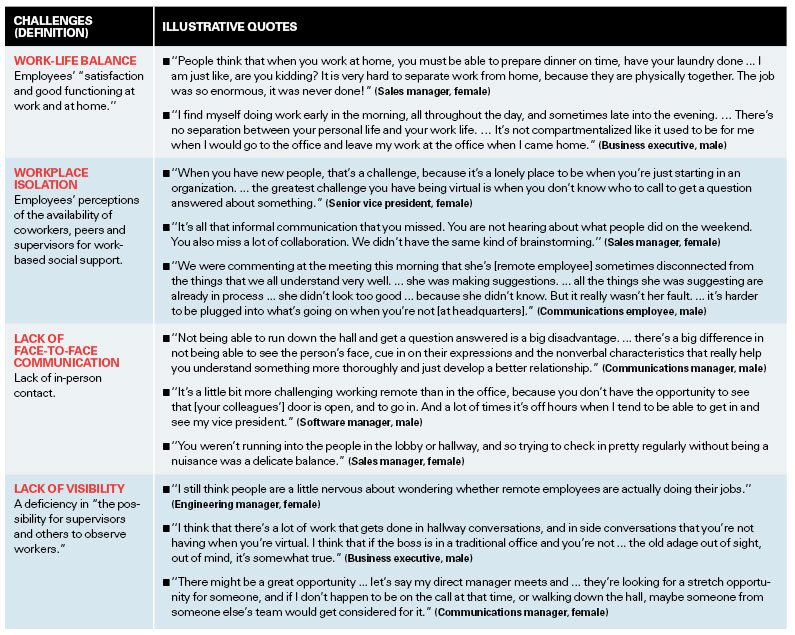
Immerse and Prosper: Embracing Cultural Discovery as a Remote Worker
Written: Vagabondist Staff| August 24, 2023

Embracing Diversity
The importance of cultural immersion in a remote work environment
As a remote worker, embracing cultural immersion is essential for a successful and inclusive virtual workplace. Cultural immersion allows you to understand and appreciate the diverse perspectives, ideas, and backgrounds of your colleagues. By actively engaging with different cultures, you can foster creativity, innovation, and collaboration within your team.
Tips for embracing diversity in a virtual workplace
-
Be open-minded: Approach cultural differences with curiosity and an open mind. Embrace new ideas and be willing to learn from others.
-
Practice empathy: Seek to understand the experiences and perspectives of your teammates. Respect and appreciate their cultural values and customs.
-
Encourage inclusion: Create an inclusive environment by actively involving everyone in discussions and decision-making processes. Celebrate cultural diversity and create opportunities for cross-cultural collaboration.
Navigating different time zones and work cultures
-
Educate yourself: Familiarize yourself with the time zones and work cultures of your global team. Understand the common practices and expectations to ensure effective communication and collaboration.
-
Communication strategies: Use technology to bridge the gap and facilitate efficient communication. Schedule regular check-ins, utilize collaborative tools, and establish clear communication protocols.
-
Flexibility and adaptability: Be flexible with your work hours to accommodate colleagues in different time zones. Respect and adapt to cultural norms and practices when collaborating with international team members.
Embracing cultural immersion as a remote worker not only promotes inclusivity and teamwork, but also enriches your own personal and professional growth. By embracing diversity, you contribute to building a positive and thriving virtual workplace.

Language and Communication
As a remote worker, cultural immersion plays a significant role in your day-to-day operations. Understanding the importance of language and communication in a multicultural environment is key to succeeding in your work.
Overcoming language barriers as a remote worker
When working with colleagues or clients from different cultural backgrounds, language barriers can pose a challenge. However, there are strategies you can employ to overcome these barriers. Clear and concise communication is essential. Be patient and understanding with others who may have limited proficiency in your language. Simplify your vocabulary, use visual aids, and provide explanations when necessary. Make an effort to learn basic phrases in the native language of your colleagues, as it shows respect and helps to break down barriers.
Utilizing translation tools and language learning platforms
In today's digital age, there are several translation tools and language learning platforms that can assist you in your cultural immersion journey. Tools like Google Translate or Microsoft Translator can help you quickly translate simple phrases or entire documents. Language learning platforms like Duolingo or Babbel can provide structured lessons to improve your language skills over time.
Effective communication strategies in a multicultural team
Working in a multicultural team requires effective communication strategies. Be mindful of cultural differences, such as communication styles, non-verbal cues, and hierarchical structures. Encourage open and respectful communication, actively listen to others, and ask clarifying questions when needed. Embrace diversity and seek to understand different perspectives, as this can lead to more creative and inclusive solutions.
By prioritizing language and communication in your work as a remote worker, you can enhance collaboration, build strong relationships, and achieve greater success in a multicultural environment.

Cultural Sensitivity and Awareness
Developing cultural sensitivity in a remote work setting
As a remote worker, it is crucial to develop cultural sensitivity to foster effective communication and collaboration with team members from diverse backgrounds. Take the time to educate yourself about different cultures, their values, and norms. Actively seek to understand and respect differences, and be open-minded in your interactions.
Understanding customs, traditions, and etiquette of different cultures
To avoid misunderstandings and to show respect, familiarize yourself with the customs, traditions, and etiquette of the cultures you work with. This includes knowledge of greetings, appropriate dress code, communication styles, and time management practices. By demonstrating cultural awareness, you can build stronger professional relationships and avoid unintentional offenses.
Respecting cultural norms during virtual meetings and collaborations
During virtual meetings and collaborations, it is important to be mindful of cultural norms. For example, some cultures may prioritize hierarchical communication styles or expect more indirect communication. Pay attention to non-verbal cues and adapt your communication style accordingly. Additionally, be aware of time zones and try to accommodate different working hours whenever possible.
By developing cultural sensitivity and respecting cultural norms, you can enhance collaboration, create a more inclusive work environment, and foster strong relationships with team members regardless of their cultural background.

Building Connections
Working remotely opens up a unique opportunity for cultural immersion as you interact with colleagues from all around the world. Embracing cultural diversity can enhance your work experience and contribute to a more inclusive and collaborative environment. Here are some key ways to foster connections in a remote work setting.
Fostering relationships with international colleagues
-
Be curious and open-minded: Take the initiative to learn about your colleagues' cultures, traditions, and perspectives. Show genuine interest in their backgrounds and ask questions to deepen your understanding.
-
Regular communication: Schedule regular video calls or virtual coffee breaks to connect with your international colleagues. Building relationships requires consistent communication and taking the time to get to know each other.
Virtual team-building activities
-
Virtual team-building games: Organize virtual games or activities that encourage collaboration, such as online trivia or virtual escape rooms. These activities foster teamwork and provide opportunities for cross-cultural interaction.
-
Cultural sharing sessions: Allocate time during team meetings for colleagues to share aspects of their culture, such as traditional recipes, music, or festivals. This promotes understanding and appreciation for different cultural backgrounds.
Creating inclusive spaces for cultural exchange
-
Diversity and inclusion initiatives: Encourage and support initiatives that promote diversity and inclusion within the organization. This can include employee resource groups or diversity training programs.
-
Language exchange programs: Facilitate language exchange programs where colleagues can learn phrases or expressions from different languages spoken within the team. This helps break down language barriers and fosters cross-cultural communication.
Cultural immersion as a remote worker enriches your professional experience and creates a more inclusive and connected work environment. Embrace the opportunity to learn from and connect with colleagues from diverse cultural backgrounds.

Work-Life Integration
Balancing work and personal life in a multicultural environment
As a remote worker, you have the unique opportunity to immerse yourself in different cultures while still maintaining a successful career. However, it is crucial to strike a balance between work and personal life. Here are some tips for achieving work-life integration in a multicultural environment:
-
Establish boundaries: Clearly define your working hours and communicate them with your colleagues and clients. This will help you maintain a consistent schedule and prevent work from encroaching on your personal time.
-
Respect cultural norms: Familiarize yourself with the cultural customs and norms of the countries you are working with. This includes understanding their working hours, holidays, and communication preferences. Being respectful of these cultural differences will help you build stronger relationships and avoid misunderstandings.
Cultural considerations for remote work schedules
When it comes to remote work schedules, it is important to take cultural considerations into account. Here are a few things to keep in mind:
-
Time zones: If you are working with team members or clients in different time zones, make an effort to be flexible and accommodating. Schedule meetings and deadlines that work for everyone involved.
-
Holidays and observances: Be aware of national holidays and observances in the countries you are working with. Respect these holidays and adjust your work schedule accordingly.
By embracing cultural immersion as a remote worker and considering cultural factors in your work-life integration, you can enhance collaboration, build stronger relationships, and achieve success in a multicultural environment.

Challenges and Solutions
Common challenges faced by remote workers in cultural immersion
As a remote worker, adapting to different cultures can pose significant challenges. Here are some common difficulties you may encounter:
-
Language barriers: Communication can be hindered when language differences exist. Understanding and expressing ideas effectively may require additional effort.
-
Cultural norms and customs: Each culture has its own set of customs and social norms. These can vary drastically from your own, leading to misunderstandings or unintentional cultural offenses.
-
Time zone differences: Working across different time zones can disrupt collaboration and hinder effective communication.
Strategies for overcoming cultural barriers and misunderstandings
To navigate cultural immersion successfully, consider the following strategies:
-
Research: Educate yourself about the culture, customs, and traditions of the country you are collaborating with. This can help you understand the context and avoid potential misunderstandings.
-
Communication: Be open and proactive in your communication. Clarify expectations, ask questions, and seek feedback to ensure clear understanding.
-
Flexibility and adaptability: Embrace a flexible mindset and be open to different ways of doing things. Willingness to adapt to the local culture can foster better collaboration and understanding.
-
Build relationships: Take the time to establish personal connections with your colleagues from different cultures. This can create a sense of trust and help bridge cultural gaps.
-
Embrace diversity: Embrace and celebrate cultural differences. Recognize the value that diversity brings to the workplace and promote inclusion.
By being mindful of these challenges and implementing effective strategies, remote workers can thrive in a culturally diverse work environment.

Embracing cultural immersion as a remote worker: A key to success
As a remote worker, it's essential to embrace cultural immersion to not only enhance your professional success but also to foster meaningful connections with colleagues and clients from diverse backgrounds. Here are some key points to consider:
-
Understanding cultural nuances: By immersing yourself in different cultures, you gain a deeper understanding of how people from different backgrounds communicate, collaborate, and conduct business. This knowledge allows you to adapt your working style and build strong relationships with individuals from various cultural backgrounds.
-
Enhancing communication: Cultural immersion enables you to develop effective communication skills, including being mindful of cultural differences in language, body language, and communication norms. This helps you navigate potential misunderstandings and promotes clear and effective communication within your remote team.
Benefits of cultural diversity in remote teams
-
Innovation and creativity: Cultural diversity brings together a range of perspectives, experiences, and ideas, fostering innovation and creativity within remote teams. Different cultural backgrounds can lead to novel solutions and approaches to problem-solving.
-
Increased adaptability: Remote teams with diverse cultural backgrounds are often more adaptable and resilient in the face of change. The ability to draw on different cultural perspectives helps teams navigate challenges and embrace new opportunities.
In conclusion, as a remote worker, embracing cultural immersion not only improves your professional success but also contributes to the overall success of remote teams. By understanding cultural nuances and promoting cultural diversity, you can build stronger relationships, enhance communication, drive innovation, and increase adaptability within your remote work environment.

Frequently Asked Questions (FAQs)
Answers to commonly asked questions about cultural immersion in remote work environments
-
What is cultural immersion in a remote work environment?
Cultural immersion refers to actively engaging with and adapting to the traditions, customs, and values of the local culture even while working remotely. It involves embracing the language, traditions, and social norms of the place where you are working from. -
Why is cultural immersion important for remote workers?
Cultural immersion allows remote workers to establish meaningful connections with the local community, enhance their cultural awareness, and experience the benefits of working in a diverse environment. It helps foster collaboration, respect, and understanding between team members from different backgrounds. -
How can remote workers immerse themselves in a new culture?
- Learn the language: Take language classes, use language learning apps, or hire a language tutor to improve your communication skills.
- Study the culture: Read books, watch documentaries, and familiarize yourself with the history, customs, and traditions of the local culture.
- Interact with locals: Engage in social activities, attend community events, and participate in local initiatives to meet and connect with people from the area.
- Try local experiences: Explore the local cuisine, visit landmarks, and participate in cultural festivals and activities.
- Be open-minded: Embrace new perspectives, be respectful of different customs, and seek opportunities to learn from others.
-
What are the benefits of cultural immersion in remote work?Cultural immersion can enhance creativity, problem-solving, and innovation by exposing remote workers to different ways of thinking. It promotes cross-cultural collaboration and improves communication within remote teams. Additionally, it provides personal growth opportunities, broadens horizons, and increases adaptability and resilience.
-
How can cultural immersion positively impact remote work productivity?By immersing yourself in the local culture, you can gain a deeper understanding of the needs and preferences of your target audience, making it easier to tailor your products or services accordingly. Cultural immersion also fosters empathy, which can enhance customer relations and boost overall productivity.
Remember, cultural immersion is an ongoing process that requires curiosity, respect, and an open mind. Embrace the opportunity to expand your horizons and create meaningful connections as a remote worker.



